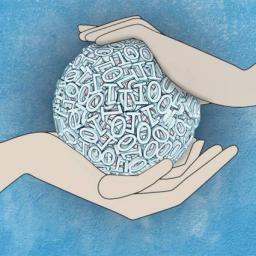
It's been proposed before, but MIT takes it a step further and is
fleshing out a system where users can take control of their own data. This would be a radical shift in how things work now.
In the latest issue of PLOS One, MIT researchers offer one possible answer. Their prototype system, openPDS - short for personal data store - stores data from your digital devices in a single location that you specify: It could be an encrypted server in the cloud, but it could also be a computer in a locked box under your desk. Any cellphone app, online service, or big-data research team that wants to use your data has to query your data store, which returns only as much information as is required.
Interestingly, the system involves sharing code, not data. They outline a music recommendation service that would make a recommendation to you not by requesting access to your music store, but by sending you an algorithm your datastore would run and return. There's more work to do here, but it seems like a step up from the "everyone owns your data except you" model in which we're currently living.
 It's been proposed before, but MIT takes it a step further and is fleshing out a system where users can take control of their own data. This would be a radical shift in how things work now.
It's been proposed before, but MIT takes it a step further and is fleshing out a system where users can take control of their own data. This would be a radical shift in how things work now.